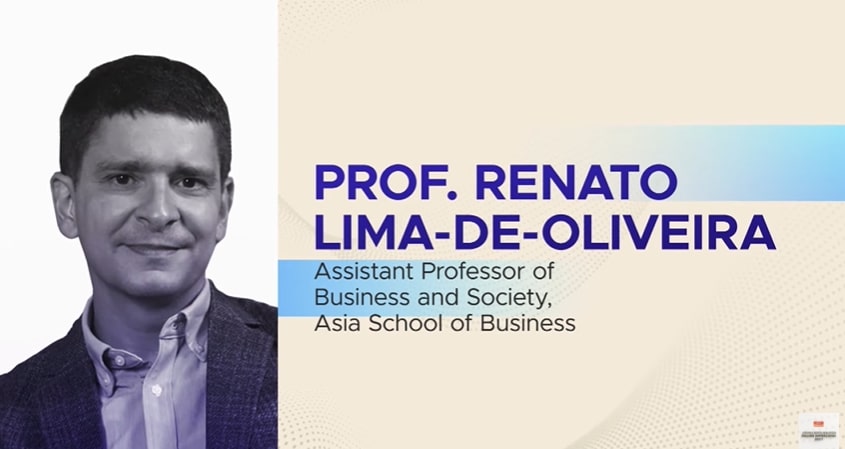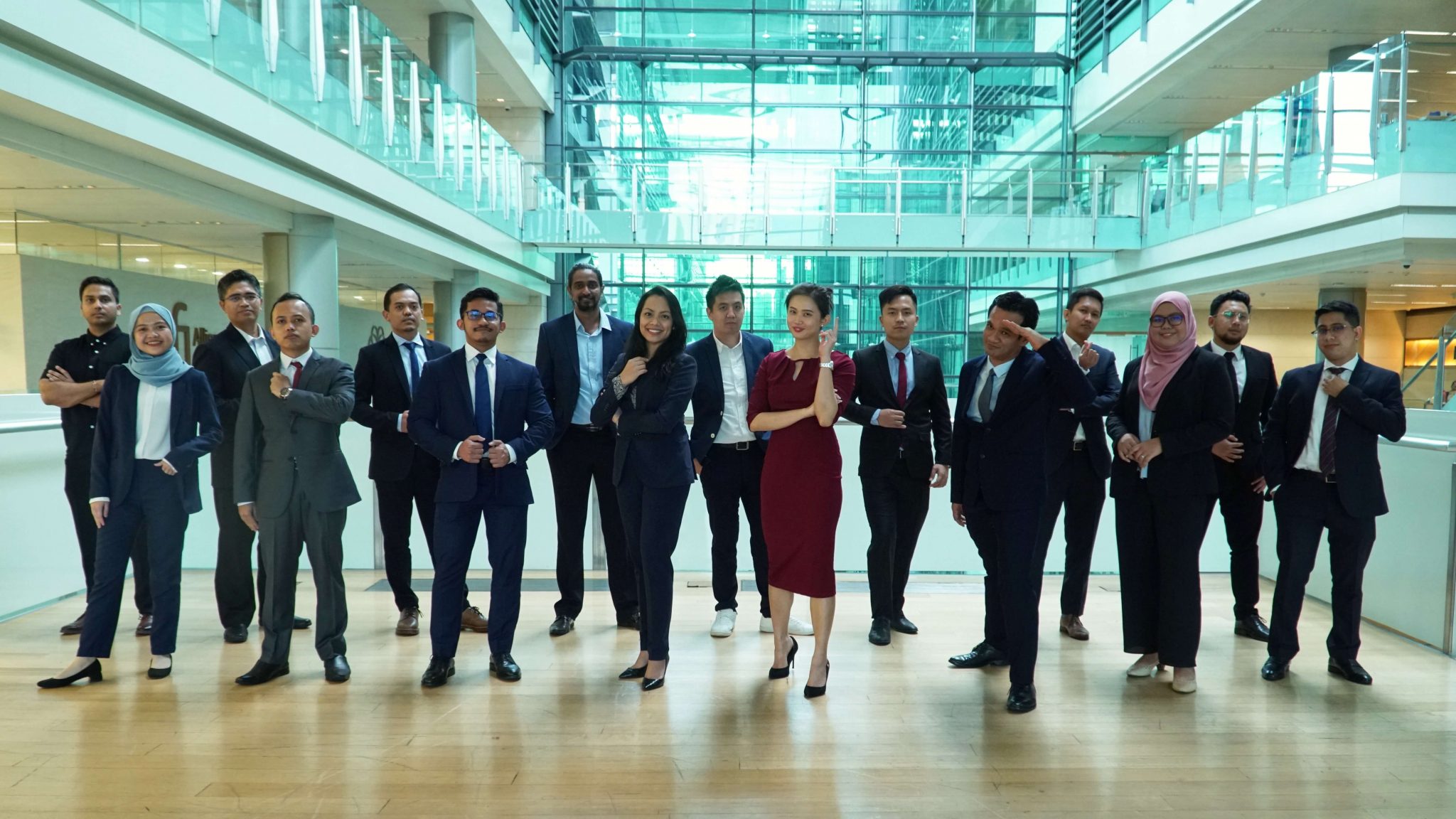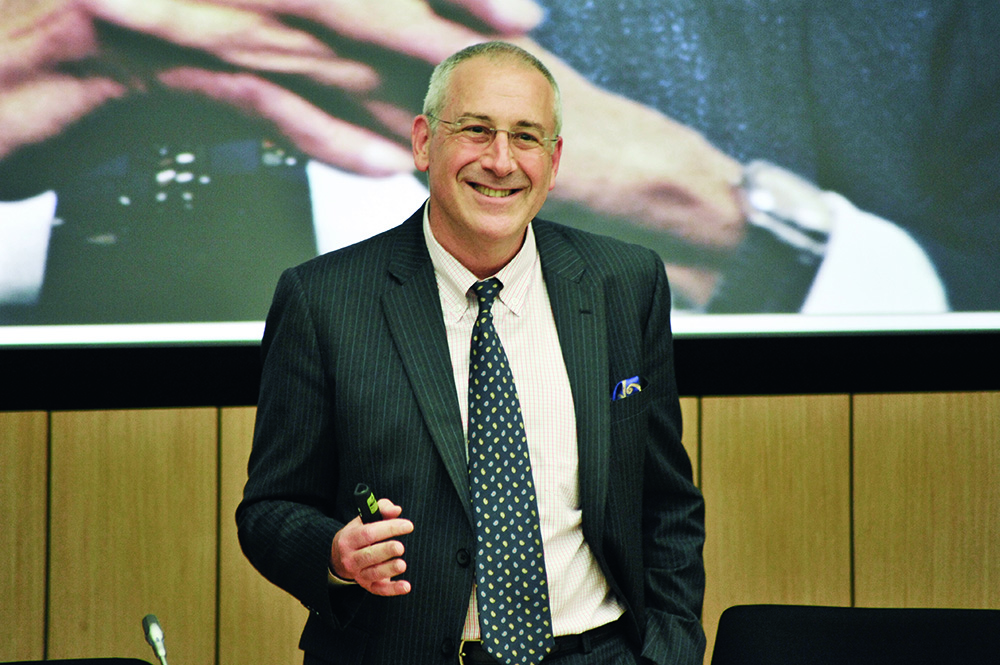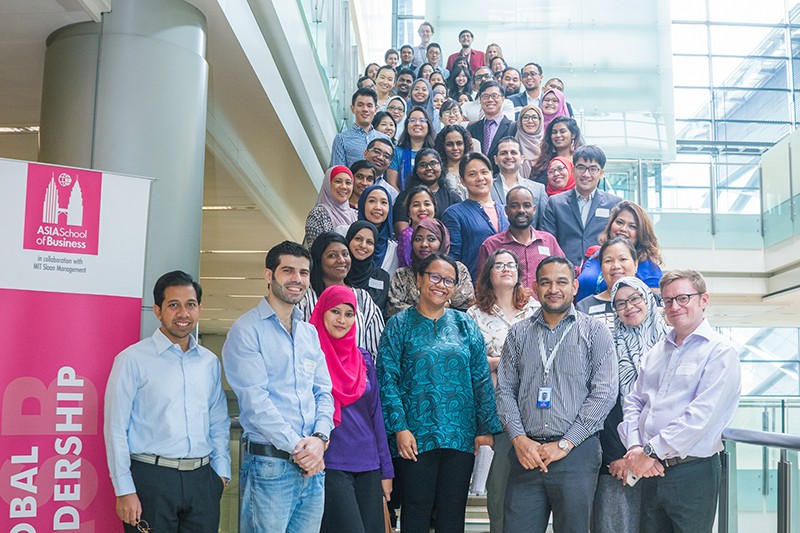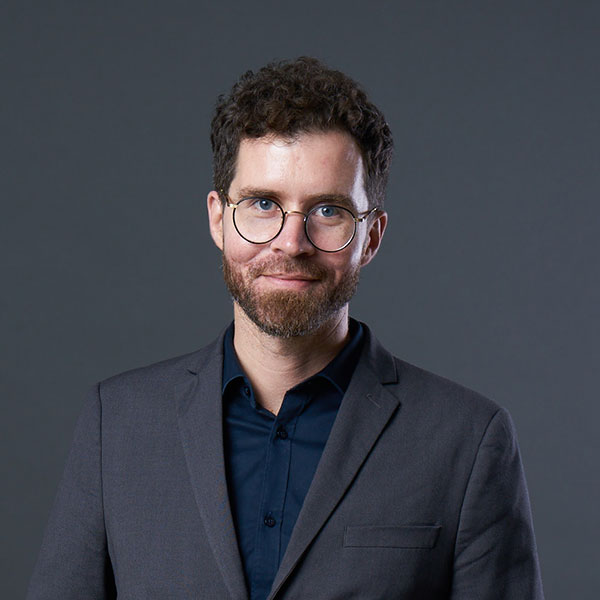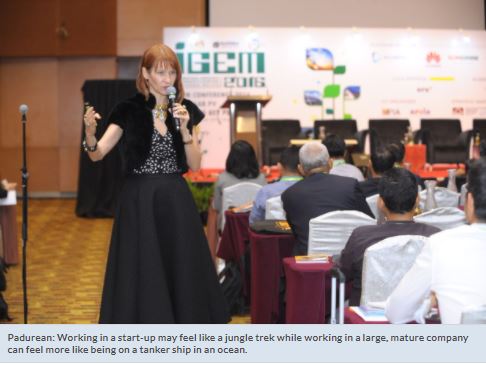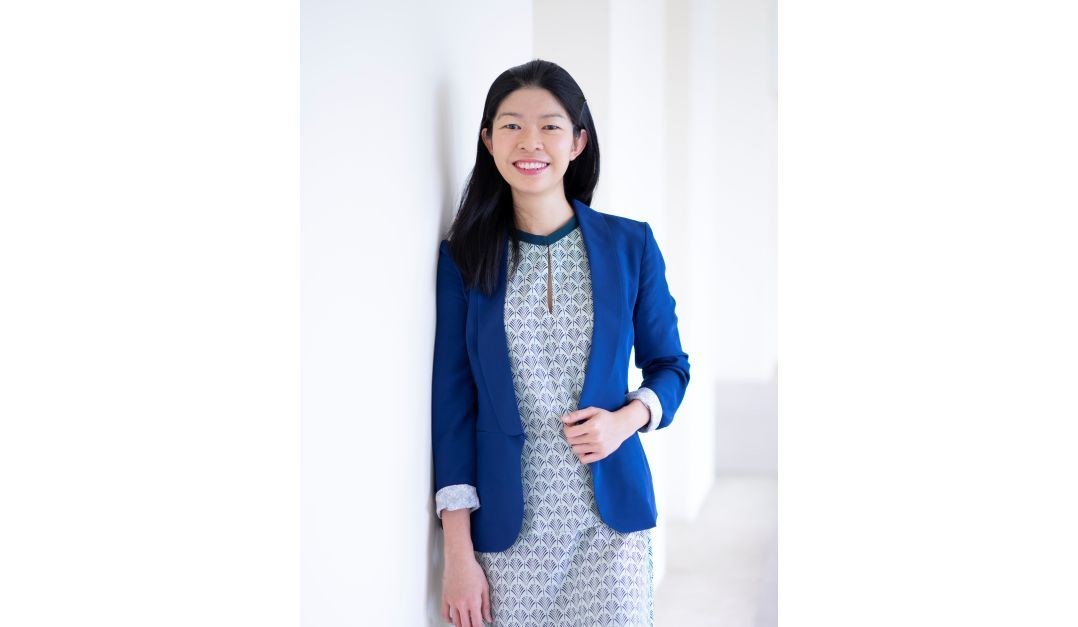Kuala Lumpur, MY. Nov 9, 2021: In conjunction with the COP26 UN Conference on Climate Change in Glasgow, Scotland, the Edinburgh-based Global Ethical Finance Initiative (GEFI), together with the University of Glasgow and Royal London, is honoring the monumental contributions of Glasgow’s most famous economist, Adam Smith, with the publication of five essays on interpreting his treatise on The Wealth of Nations for the contemporary challenges the world faces with climate change.
Tan Sri Dr Zeti Aziz, former Governor of the Central Bank of Malaysia and visionary and Co-Chair of the Board of Governors for Asia School of Business (a collaboration with MIT Sloan) was invited to contribute to this discourse with an essay interpreting for modern times Book V of Adam Smith’s Wealth of Nations. Dr Zeti observes that Smith’s Book V addresses the appropriate role of government in influencing the populace’s wellbeing, which complements his famous observation that an “invisible hand” will typically guide economic transactions and outcomes.
In fact, Smith advocates that government provides what Dr Zeti refers to as a “helping hand” concerning the provision of public goods and regulations where pure market outcomes require guidance. Her view is that Adam Smith would have advocated for government action toward environmental sustainability by providing regulations and incentives for private industry and providing appropriate investments to address the climate change agenda.
Immediately following the conclusion of the COP26 Conference in Glasgow, Asia School of Business’ annual conference, Leadership for Enterprise Sustainability Asia (LESA), will run from 15-18 November, amplifying many of the COP26 messages but interpreting them for Malaysia and the ASEAN and emerging Asian nations. Details on the ASB LESA conference appear at https://asb.edu.my/lesa. Dr Zeti has been invited to share her views at the LESA conference.
The Press Release from the Global Ethical Finance Initiative (GEFI) appears below. The full essay by Dr Zeti, reproduced by permission of the author, may be found on the ASB website at https://asb.edu.my/of-the-revenue-of-the-sovereign-or-commonwealth/
Press Release from the Global Ethical Finance Initiative
SCOTLAND’S FIRST MINISTER JOINS LEADING GLOBAL ECONOMISTS TO UPDATE ADAM SMITH’S WEALTH OF NATIONS FOR THE 21ST CENTURY CLIMATE CRISIS
A major new essay series has been launched at COP26 in which leading global thinkers explore today’s climate crisis through the eyes of economic pioneer Adam Smith. The reimagining of the Wealth of Nations includes a foreword from First Minister Nicola Sturgeon, in which she argues that Smith would have likely ‘supported regulation to guard against the destruction of the planet’.
She also makes the argument to look beyond GDP as the primary measure of a country’s success, adding: “At this pivotal moment for the planet and as we emerge from the challenges of the pandemic, progressive nations and governments are increasingly focusing on wellbeing, not simply an increasing GDP for the sake of it.”
The series of five essays has been prepared by the Edinburgh-based Global Ethical Finance Initiative (GEFI), in conjunction with the University of Glasgow and Royal London, bringing together world-renowned experts to reimagine Smith’s works.
The authors include Usha Rao-Monari, Under-Secretary-General at the UN, Professor Sir Anton MuscatelIi from Glasgow University, Lord Meghnad Desai, Professor Emeritus at the London School of Economics, sustainable fund management pioneer David Pitt-Watson and former Malaysian Central Bank Governor Dr Zeti Aziz.
This series of essays takes the Wealth of Nations and updates it for the 21st century, asking how Smith’s work applies to the challenges of today. The work is designed to encourage and inspire further creative thinking and practical action to leave an enduring legacy after the COP26summit.
The essays are being explored at an evening lecture series taking place across three days during the second week of the COP26 Conference at the University of Glasgow Adam Smith Business School, and online.
In her foreword, First Minister Nicola Sturgeon writes:
“We cannot know exactly how Smith would have responded to the climate emergency, but given his support for reasonable protections against, for example, abuse of monopolies, it seems likely that he would have supported regulation to guard against the destruction of the planet.
“This series of essays takes the Wealth of Nations and updates it for the climate change era, asking how the themes of Smith’s work apply to the challenges of today and teasing out how Smith himself might have reacted to the climate emergency.
“It showcases Scotland’s proud academic history, and is a timely celebration of one of the key figures of the Scottish Enlightenment… “It is the perfect time to reach back into our past as we look ahead to a future that is cleaner, greener and more just.”
Sam Wheldon-Bayes of the Global Ethical Finance Initiative, editor of The Wealth of Nations in the 21st Century, said:
“During the 18th century, the Scottish Enlightenment put Glasgow at the heart of world thinking. Today, with the world in Glasgow for COP26, we ask what we can learn from one of the great pioneers of the Scottish Enlightenment.
“Expert authors, across three continents, from the fields of finance, economics, politics, development and central banking have written five essays drawing on Smith’s themes and reflecting on the climate crisis.
“They consider both how Smith’s thinking can guide our approach to climate action, and what he himself might have thought about the climate crisis. “Our wish is that the essay series drives creative thinking and practical action to make the changes needed in the financial system for a sustainable future for planet and people.. ”
Kaisie Rayner, Climate Change Lead at Royal London, said:
“When Scottish moral philosopher and economist Adam Smith wrote his first book about markets, the role of government, and society, in 1759, he would never have imagined it’s global impact, far less its continued relevance in the modern world. Yet, here we are over 250 years later considering how it can help us navigate the 21st century. That’s quite some legacy.
“As the eyes of the world focus on Glasgow, it’s fitting that we consider Smith’s instruction to be guided by a moral compass. We also hope that leaders gathered for COP26 emulate the global success of Smith’s works and provide a legacy we can all contribute to and be proud of. The action we take on climate change over the next decade will radically shape the health of the planet, so we have to act now to help customers retire into a future worth living in.”
– END –
NOTES
The essays, including the foreword from Nicola Sturgeon, can be read here: https://www.globalethicalfinance.org/wp-content/uploads/2021/11/Wealth-of-Nations.pdf
Adam Smith at the COP- more information available here: https://www.pathtocop26.com/workstreams/adam-smith-at-the-cop/
Register for the launch events at: https://www.eventbrite.co.uk/e/adam-smith-at-the-cop-path-to-cop26-tickets-182421968017
Further details on the essays:
- Essay 1: Of the Causes of Improvement in the productive Powers of Labour – Lord Meghnad Desai – renowned UK economist
- Essay 2: Of the Nature, Accumulation and Employment of Stock – David Pitt-Watson, pioneer of ethical fund management and co-chair of finance negotiations at Paris Climate Summit
- Essay 3: Of the different Progress of Opulence in different Nations – Usha Rao-Monari & George Gray Molina, Under Secretary at the UN charged with driving the UN’s Development Programme
- Essay 4: Of Systems of political Economy- Professor Sir Anton MuscatelIi, Dr Michele Battisti & Dr Craig Smith, Leading Scottish Economist and Vice Chancellor of Glasgow University
- Essay 5: Of the Revenue of the Sovereign or Commonwealth -Tan Sri Dr Zeti Aziz, former Governor of the Central Bank of Malaysia
- The Misinterpretation of Adam Smith: Bringing Back the Theory of Moral Sentiments – Kaisie Rayner, Head of Climate Change at Royal London
About GEFI
The Global Ethical Finance Initiative (GEFI) is the hub at the centre of the ethical fina·nce movement. We curate independent conversations among a broad coalition of financial services stakeholders, as well as delivering practical projects. We are the partner for action on ethical finance, based in Scotland. https://www.globalethicalfinance.org/
The finance sector needs to act together to achieve decisive action at COP26 in Glasgow, the most important summit since Paris. With a global footprint and Scottish roots, GEFI has united the leading financial services stakeholders committed to action at COP26 with a campaign of over 30 events and activities. We are committed to making finance work for COP26, and COP26 work for finance. https://www.pathtocop26.com/





